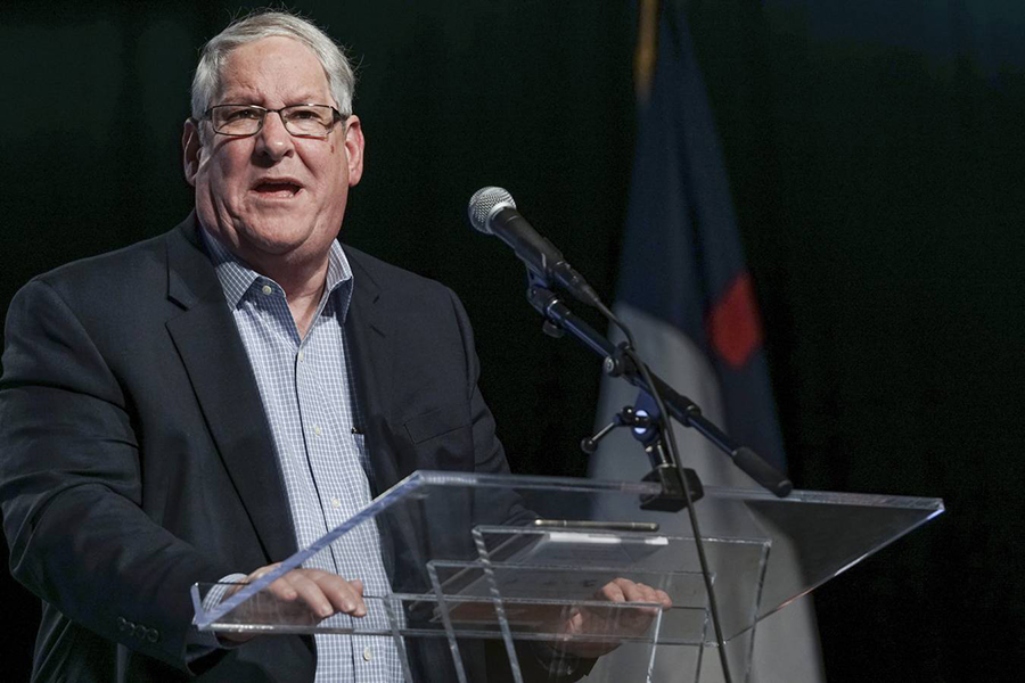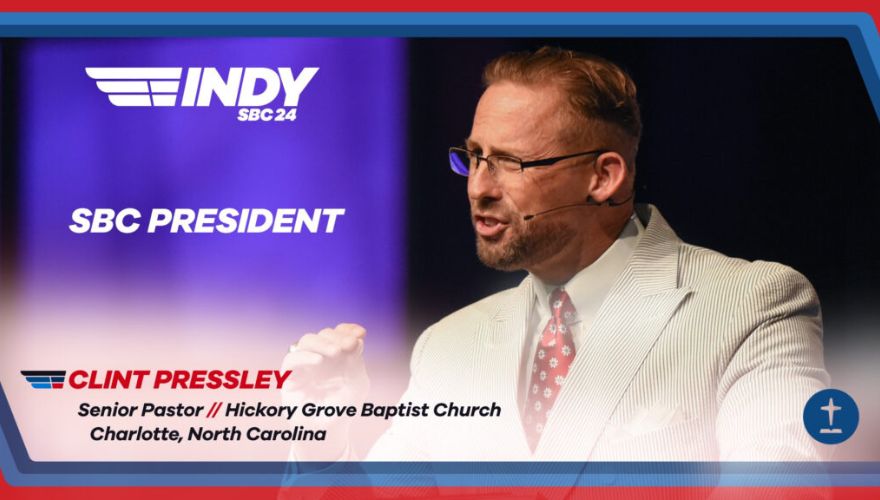
NEW ORLEANS (BP) — A former Southern Baptist Convention (SBC) seminary president is calling for the convention to “repent, reset and recommit to its founding missional identity.” Chuck Kelley, president emeritus of New Orleans Baptist Theological Seminary (NOBTS), makes the impassioned plea in an essay released to Baptist Press just days before the 2024 SBC annual meeting.
“Southern Baptists must find in themselves the will, the discipline and the passion to refocus on reaching the lost of Christ, baptizing them and discipling them,” Kelley writes.
Kelley, a longtime evangelist, led NOBTS from 1996 to 2019. Notably, he helped the school navigate the devastation of Hurricane Katrina in 2005 and played a key role in Southern Baptist Disaster Relief efforts in the New Orleans area.
“America’s largest Protestant family of churches faces a long-ignored problem of epic proportions: systemic decline,” Kelly writes. “Pick any decade in the last 75 years and compare the statistics in the Annual Church Profile (ACP) reports for those years with the years since the Great Commission Resurgence.” Kelly takes issue especially with one major result of the 2010 Great Commission Resurgence (GCR) recommendations — the restructure and change in direction of the North American Mission Board (NAMB.)
The original GCR Task Force recommendations were adopted by messengers to the 2010 SBC annual meeting. Among those recommendations were a significant restructuring of the North American Mission Board and a change in the SBC’s church planting strategy.
Kelley says the difference is clear and “stunning.” He cites baptism statistics as evidence.
Focusing on baptisms
“First, in the year 2000, SBC churches baptized an average of 9.9 people per church,” he writes. “A decade later in 2010, SBC churches reported a decrease to 7.2 baptisms per church. In 2019, nearly a decade after the Great Commission Resurgence initiative and before the pandemic, that number dropped to only 4.9 baptisms per church.”
He says this year’s ACP report citing an increase in the number of baptisms is a bright spot, “but knowing that we still lag behind what half as many churches did 85 years ago is sobering.”
Focusing on Cooperative Program giving
Kelley also compares previous Cooperative Program (CP) giving amounts to modern totals.
In the 1980s, “10.50% of the undesignated gifts to SBC churches went to the Cooperative Program,” he writes. “By the end of the second decade of the 21st century, only 5.22% of the undesignated gifts went to CP. For the last five years, the CP giving percentage slipped to 4.74%.”
He goes on to call it a “red flag” that the number of SBC churches “that give nothing to CP is steadily increasing.”
Kelley says he did not write the essay to be negative, but because “the problem of decline has yet to become a Convention-wide conversation among Southern Baptists or a concerned emphasis from SBC leaders.”
A rare opportunity
There is a rare opportunity in front of Southern Baptists, Kelley says.
He points to the recent election of Jeff Iorg to lead the SBC Executive Committee and the upcoming election of a new SBC president as moments to set new agendas and make significant appointments.
In addition, he calls on Southern Baptists to pay close attention to the report of the GCR Evaluation Task Force making its presentation to the SBC annual meeting in Indianapolis.
Kelley is calling on Southern Baptists to repent. “We must embrace the reality that many of our churches and ministries are having results that fall below expectations, ours and the Lord’s,” he writes.
“We must refuse to blame anyone but ourselves.”
He also calls on Southern Baptists to “interrupt the current Convention conversation and stop the path we are on.”
What does redirection look like?
Kelley has a number of specific recommendations for messengers to the upcoming annual meeting. First, he says the sexual abuse reform report to be presented at the meeting should be immediately referred to the Ethics & Religious Liberty Commission (ERLC.) “This issue naturally connects with the ERLC more than any other SBC entity,” he writes.
Next, he believes the so-called Law Amendment should be referred to the Council of Seminary Presidents for the creation of a White Paper on “The Use of the Term Pastor in Church Staff Job Descriptions.”
“Most Southern Baptists believe the Bible teaches every pastor leading a church should be male,” he writes. “Less clear are opinions about the inclusion of the term ‘pastor’ in the title or job description of other church staff members who are obviously not the leader of the church.
“More clarification and careful explanation of the theological and practical issues involved is absolutely essential to maintain the unity Southern Baptists have always had about gender and the office of the pastor.”
Kelley says the “time is now for Southern Baptists” to avoid the loss of the very essence of their identity.
“The Southern Baptist Convention is out of runway,” he writes.
“Will the Southern Baptists who go to the Indianapolis 2024 SBC (annual meeting) launch an unprecedented movement to break the grip of decline and restore the SBC to its status as a Great Commission juggernaut? Time will inevitably tell.”
(EDITOR’S NOTE — Brandon Porter serves as associate vice president for convention news at the SBC Executive Committee.)


